This post may contains affiliate links. Read our full disclosure here.
Ever had a glass of wine made from juicy blackberries instead of grapes? If you haven’t, you’re missing out on something truly special. Blackberry wine delivers a deep, fruity burst that tastes like late summer captured in a bottle—bold, slightly wild, and completely different from your typical Cabernet. Whether you’re pairing it with dinner, serving it alongside dessert, or thinking about crafting your own batch, this fruit wine might just become your new go-to bottle.
This isn’t just flavored grape wine with blackberry essence thrown in. We’re talking about the real deal—100% fermented blackberries that create something uniquely delicious. From understanding what makes blackberry wine special to discovering perfect food pairings and even learning how to make your own, we’ll break down everything you need to know about this underrated gem.
What Is Blackberry Wine?
So, what is blackberry wine, exactly? Simply put—it’s wine made by fermenting blackberries, not by infusing grapes with blackberry flavor. That’s right, no grapes involved whatsoever. This is authentic blackberry fruit wine, often crafted in small batches by artisan producers or passionate home winemakers.
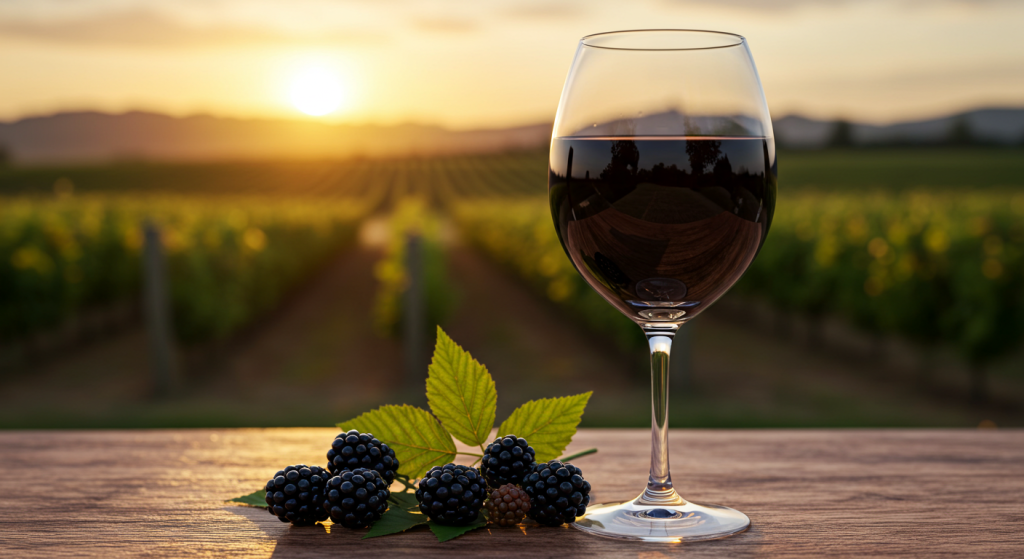
Unlike mass-market wines you find at every grocery store, homemade blackberry wine or small-batch artisan bottles put the berry front and center. You can expect a darker, more intense color and richer fruit notes compared to your typical Merlot or Pinot Noir. It’s unapologetically bold and vibrant—perfect for anyone who loves their fruit wines juicy and full of character.
The production process mirrors traditional grape winemaking but uses fresh blackberries as the primary ingredient. Many winemakers combine this with the same fermentation techniques used for grape wines, creating something that’s familiar yet completely unique.
Key characteristics of blackberry wine:
- Made from 100% fermented blackberries (not just flavored)
- Often produced in small regional batches or homemade
- Deep purple-red color with rich berry-forward profile
- Typically fuller-bodied and slightly thicker than grape wines
- Natural sweetness balanced with light tannins
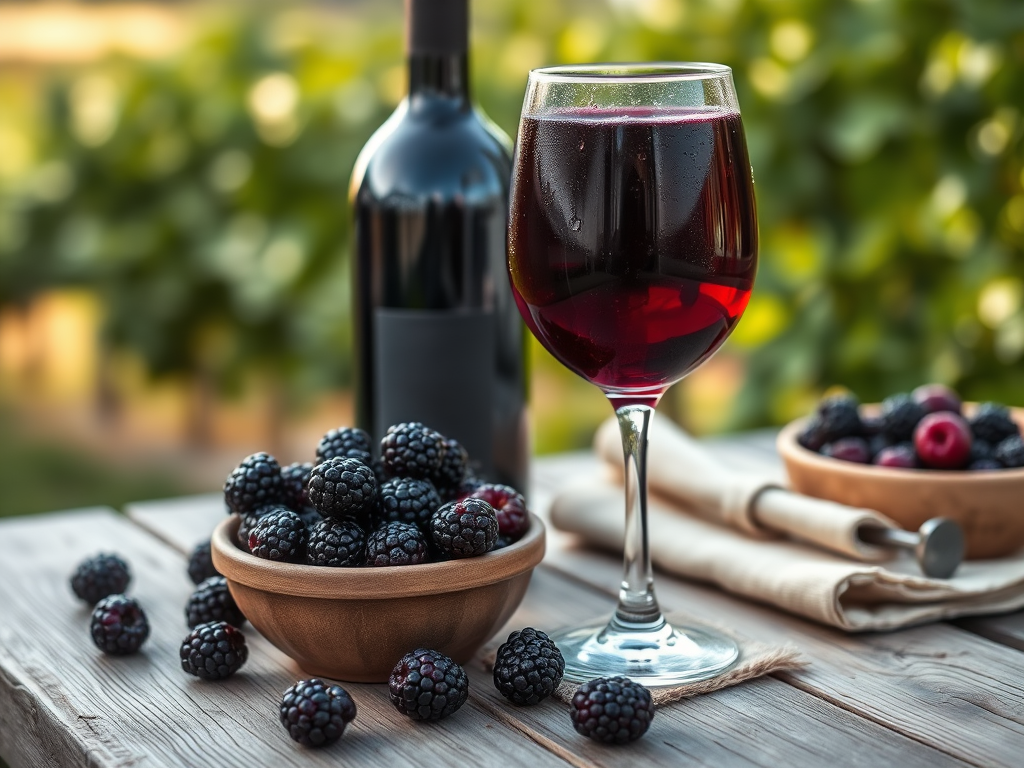
What Does Blackberry Wine Taste Like?
What does blackberry wine taste like? Think bold, ripe blackberries with just enough acidity and spice to keep things interesting. It’s like taking a bite of fresh berry pie but in liquid form.
The blackberry wine flavor profile typically lands somewhere between a dark berry compote and a subtle port—jammy, rich, and totally sip-worthy. Depending on the winemaking process, you might pick up hints of cocoa, warm spices like cloves, or even subtle floral notes that add complexity. The sweetness levels vary significantly, ranging from dry blackberry wine to sweet blackberry wine, though most bottles you’ll find lean semi-dry.
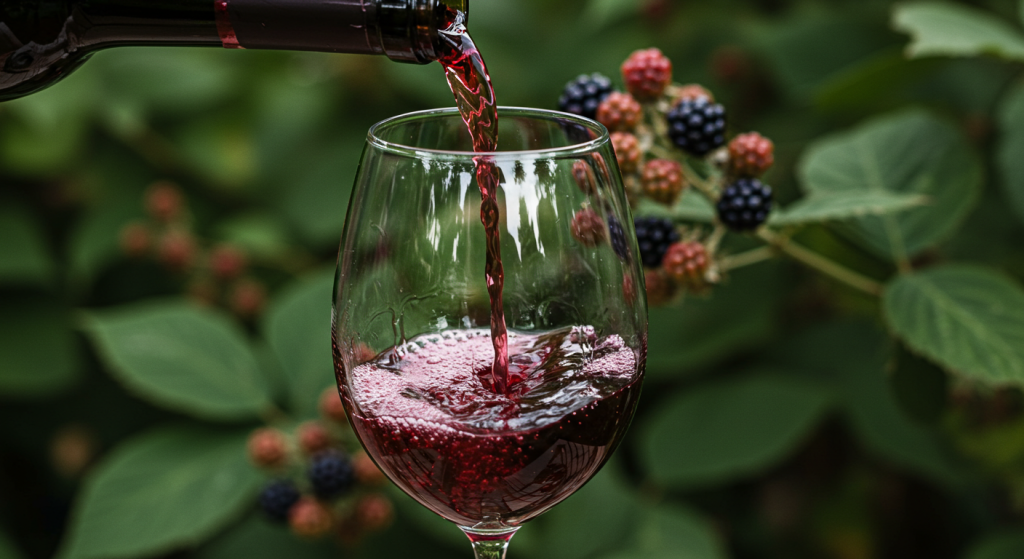
One of my favorite things about this wine is its approachable nature. Unlike some grape wines that can taste harsh or overly tannic to beginners, blackberry wine tends to be smooth and mellow. The natural fruit sugars create a pleasant mouthfeel without being cloying or overpowering.
Common blackberry wine tasting notes include:
- Primary flavors: Fresh blackberries, dark plums, and ripe cherries
- Secondary notes: Vanilla, cocoa, mild spices, or light floral hints
- Texture: Smooth mouthfeel with a pleasant, lingering finish
- Balance: Light acidity and gentle tannins for structure
- Sweetness: Ranges from bone-dry to dessert-wine sweet
As one backyard winemaker told me, “It’s like dessert in a glass, but without being overly sugary.” That description really captures what makes this wine so appealing to both casual sippers and serious wine lovers.
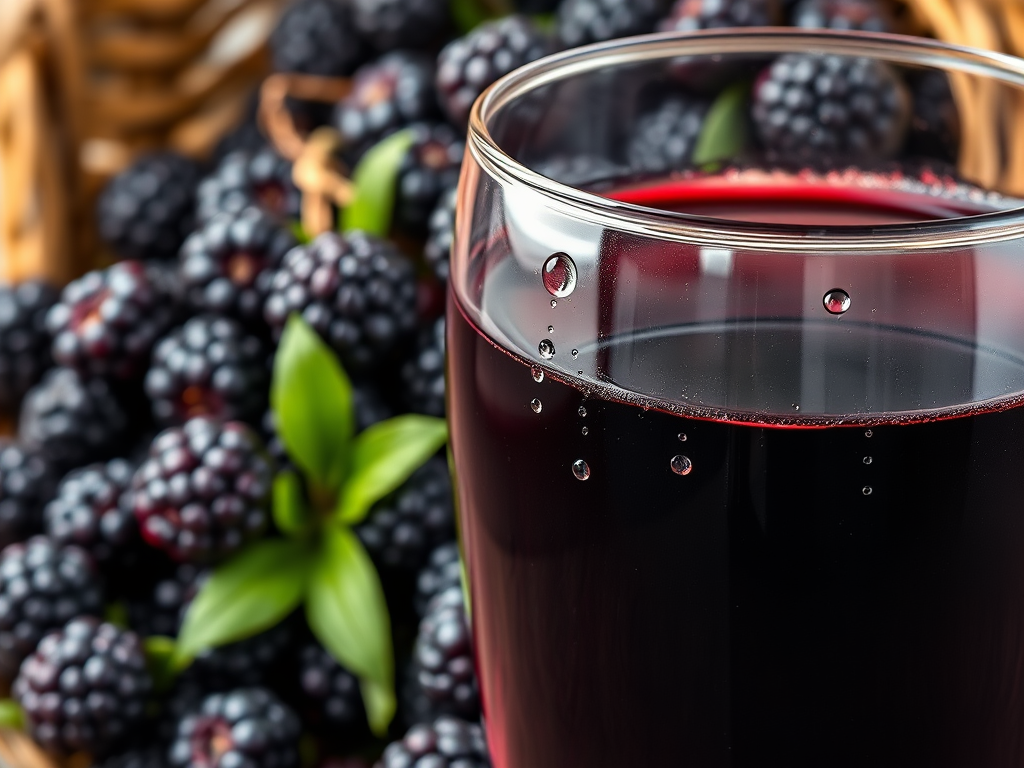
Perfect Pairings for Blackberry Wine
Thanks to its richness and fruit-driven character, blackberry wine proves surprisingly versatile at the dinner table. Whether you’re building a cheese board for friends or firing up the grill for a weekend barbecue, this wine plays well with both savory and indulgent options.
The key to great blackberry wine pairings lies in its natural ability to bridge the gap between fruity and sophisticated. Its berry-forward profile complements rich cheeses beautifully, while its subtle tannins can stand up to heartier proteins without overwhelming delicate flavors.
Best blackberry wine pairings:
🧀 Cheese Board Favorites:
- Aged sharp cheddar (the nuttiness pairs beautifully)
- Creamy goat cheese with herbs
- Triple-cream brie or camembert
- Mild blue cheese for adventurous palates
🍖 Hearty Main Dishes:
- Roast pork with blackberry glaze or fruit stuffing
- Duck breast with crispy skin
- Grilled sausages or barbecue ribs
- Lamb chops with rosemary
🍰 Dessert Companions:
- Dark chocolate cake or brownies
- Mixed berry tarts or pies
- Cheesecake with berry compote
- Vanilla ice cream or panna cotta
If you’re new to blackberry wine and cheese pairing, start with creamy goat cheese. The tangy, creamy texture creates a perfect contrast to the wine’s rich berry flavors. For those interested in exploring more pairing principles, understanding basic pairing fundamentals can open up even more delicious combinations.
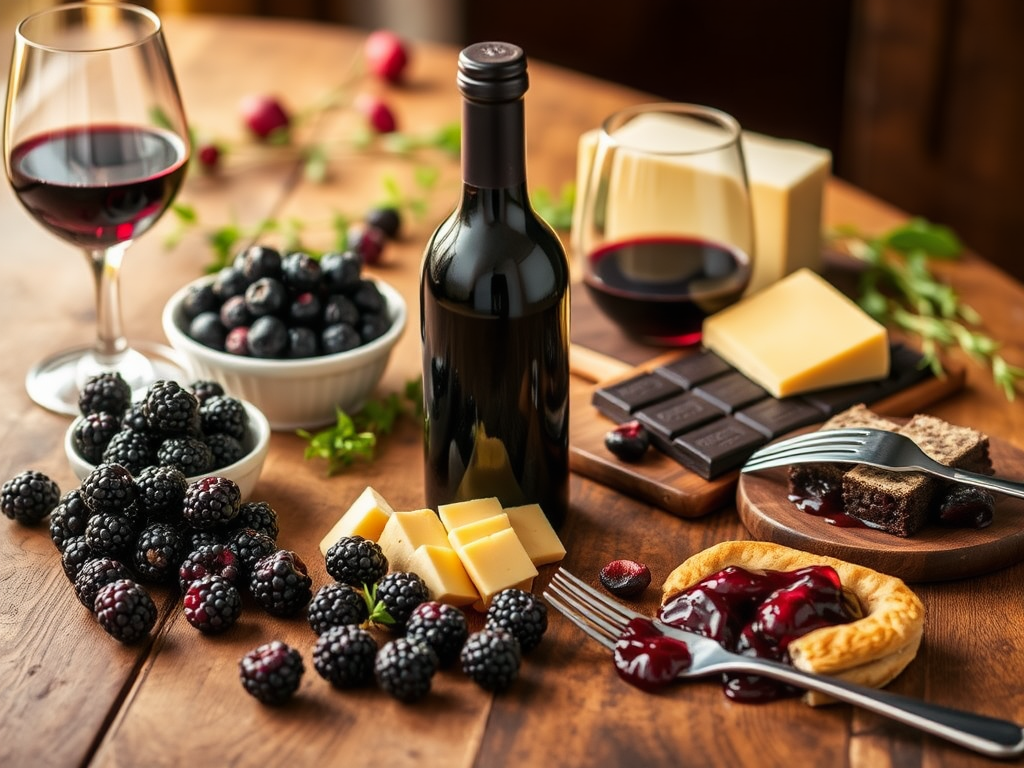
Can You Make Blackberry Wine at Home?
Absolutely! If you’re already dabbling in backyard winemaking, homemade blackberry wine makes an excellent next project. You’ll need fresh or frozen blackberries, sugar, wine yeast, clean water, and plenty of patience. The process follows similar steps to other fruit wines—fermentation, racking (transferring wine off sediment), aging, and finally bottling.
The beauty of learning how to make blackberry wine lies in its forgiving nature. Blackberries contain natural sugars and acids that create favorable fermentation conditions, making them ideal for beginners. Plus, you can customize the final product by adjusting sugar levels, adding spices, or blending with other berries.
Most home winemakers find the process rewarding but not overly complicated. You’ll need basic equipment—a fermenter, airlock, siphoning tube, and bottles—but nothing too specialized or expensive to get started.
Essential supplies for making blackberry wine:
- Primary fermenter (food-grade bucket or carboy)
- Fresh or frozen blackberries (about 3-4 pounds per gallon)
- Granulated sugar for fermentation balance
- Wine yeast (Champagne or Montrachet work well)
- Airlock and rubber stopper
- Siphon tube for racking
- Wine bottles and corks for storage
For a reliable blackberry wine recipe, I recommend starting with this tested recipe from Allrecipes. It walks you through each step clearly and includes helpful tips for troubleshooting common issues. Many home winemakers add their own twist with herbs like lavender, spice blends, or even oak chips during aging.
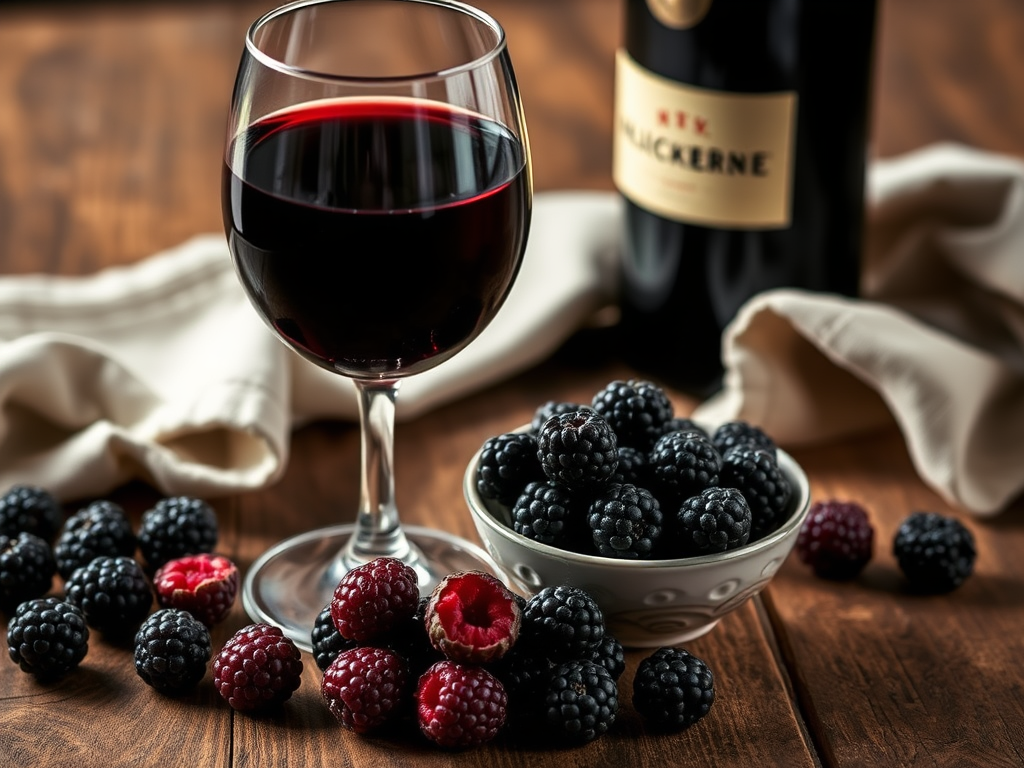
Where to Buy Blackberry Wine (If You’re Not Making It)
Not interested in DIY winemaking? No problem—there are plenty of places to discover the best blackberry wine available commercially. From online retailers to local farmers markets, options abound for finding quality bottles that showcase what this fruit wine can offer.
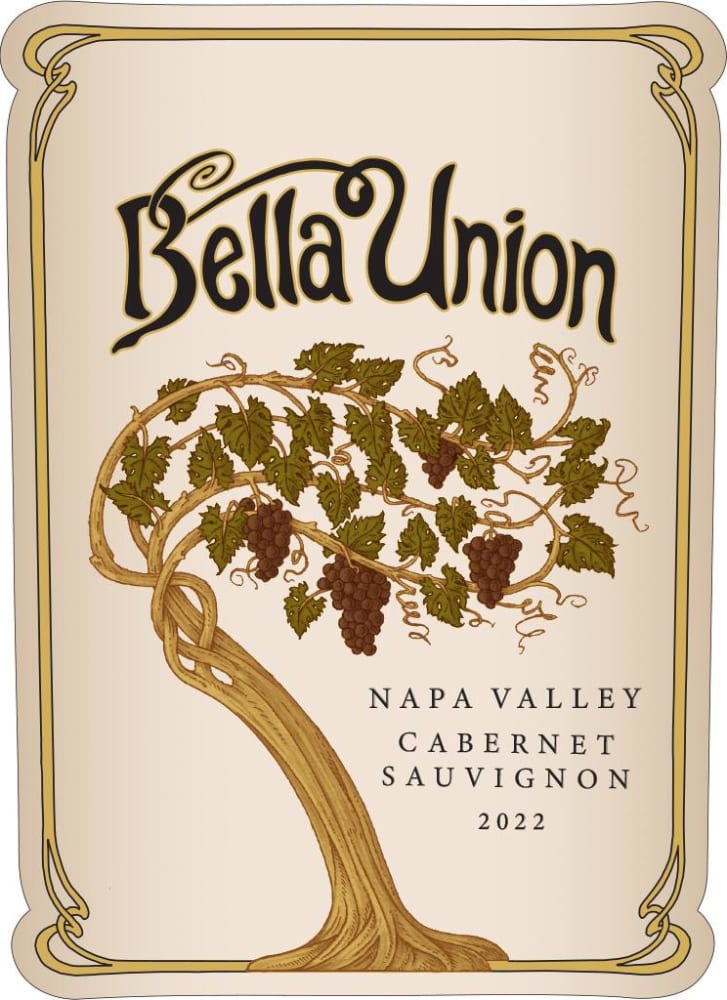
Online shopping opens up access to small-batch producers and artisan wineries that specialize in fruit wines. Wine.com features a rotating selection that includes several excellent options. Their St. James Winery Blackberry Wine from Missouri offers a smooth, approachable profile that’s perfect for newcomers, while the Chateau Diana Blackberry Wine from California provides an affordable, beginner-friendly introduction to the style.
Local options often provide the most interesting discoveries. Small wineries, especially in berry-growing regions, frequently produce limited batches that showcase local fruit. Etsy has become a fantastic resource for finding small-batch blackberry fruit wine from home producers, often with unique flavor profiles you won’t find anywhere else.
Best places to find blackberry wine:
- Online retailers: Wine.com, local winery websites, specialty fruit wine shops
- Etsy marketplace: Small-batch producers and artisan winemakers
- Local sources: Farmers markets, regional wineries, wine festivals
- Specialty stores: Gourmet food shops, wine boutiques
- Subscription boxes: Fruit wine or regional wine club memberships
These sources work particularly well for anyone seeking blackberry wine for beginners. Many producers offer tasting notes and serving suggestions that help newcomers understand what they’re purchasing. Some even provide small sample sizes, letting you try before committing to a full bottle.
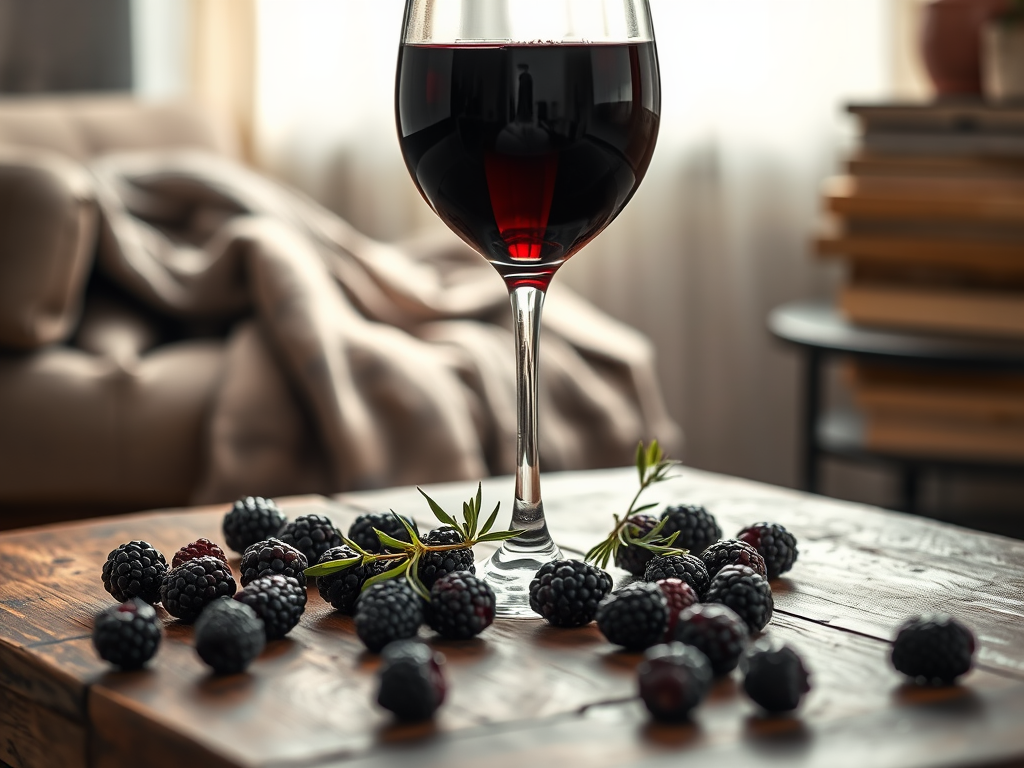
For those interested in exploring beyond blackberry, consider trying blueberry wine or other fruit wines to expand your palate. Many producers offer mixed cases that let you compare different berry wines side by side.
Blackberry Wine vs. Grape Wine: What’s the Difference?
Let’s settle the blackberry wine vs grape wine debate with some practical perspective. Both have their place, but they offer distinctly different experiences that appeal to different palates and occasions.
Blackberry fruit wine tends to be more approachable for casual wine drinkers. It’s typically fruitier, softer, and often carries some residual sweetness that makes it easy to enjoy without food. Grape wines, especially reds, can be more structured with higher tannins and complex flavor profiles that develop over years of aging.
Think of it this way: grape wines are like classical music—sophisticated, complex, and rewarding for those who understand the nuances. Blackberry wine is more like your favorite playlist—immediately enjoyable, mood-lifting, and perfect for casual moments.
Key differences between blackberry and grape wines:
| Blackberry Wine | Grape Wine |
|---|---|
| Fruitier, softer, often with residual sweetness | More structured, can range from bone-dry to sweet |
| Lower in tannins, smoother mouthfeel | Higher tannins (especially reds), more astringent |
| Perfect as dessert wine or casual sipper | Ideal for structured meals and cellaring |
| Beginner-friendly and immediately enjoyable | Can require developed palate to fully appreciate |
| Limited aging potential | Many improve with proper cellaring |
If you’re someone who gravitates toward dessert wines or prefers fruit-forward flavors, blackberry wine offers an easy entry point. It’s also perfect for introducing wine-curious friends who might find traditional grape wines too dry or tannic.
As one fruit wine enthusiast put it: “Grape wines are about terroir and tradition. Blackberry wine is about pure, unadulterated fruit joy.” Both approaches have merit depending on what you’re seeking from your wine experience.
Your Next Blackberry Wine Adventure
Blackberry wine doesn’t need to remain a mystery any longer. Whether you’re sipping it from a cozy back patio, pairing it with creamy brie and crackers, or planning your first homemade batch, this fruit wine offers an approachable and flavorful experience that keeps drawing you back. Its rich berry character and smooth profile make it perfect for both wine newcomers and seasoned enthusiasts looking to explore beyond traditional grape varieties.
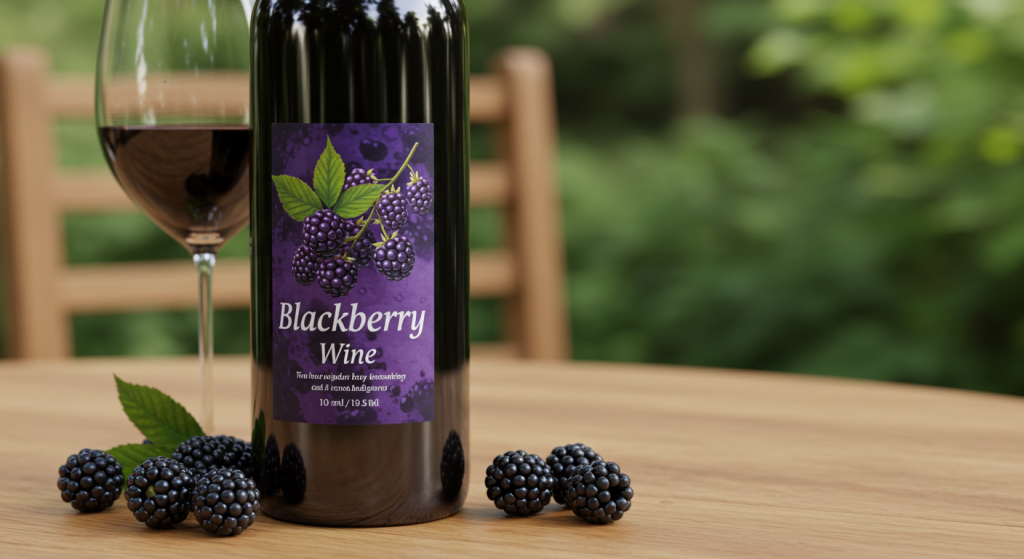
The beauty of blackberry wine lies in its versatility and pure fruit expression. Unlike many grape wines that require specific serving temperatures or elaborate decanting rituals, this wine simply asks you to pour, sip, and enjoy. It bridges the gap between casual drinking and wine appreciation, offering enough complexity to discuss but enough approachability to share with anyone.
From artisan bottles crafted by small producers to homemade batches fermented in your own kitchen, blackberry wine represents the joy of fruit winemaking at its finest. The next time you’re browsing wine selections or planning a dinner party, consider adding a bottle to your lineup. Your taste buds—and your guests—will thank you for the delicious discovery.
Have you tried blackberry wine yet? Share your favorite way to enjoy it or what you’d love to pair it with!




